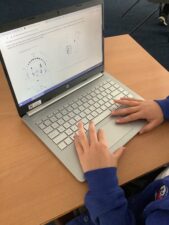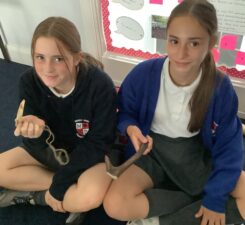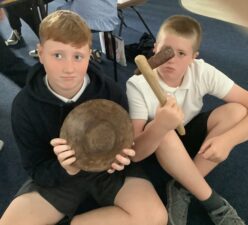“We are not makers of History. We are made by History.”
Martin Luther King, Jr
History at Mersey Park
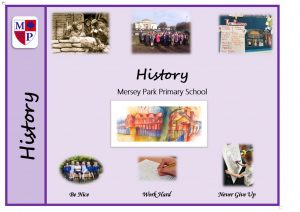
Please click the link below to find out how we teach History at Mersey Park.
History at Mersey Park Primary School
History Report to Governors
History Subject Leader Report 2025
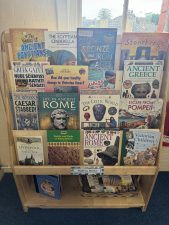
Long Term Overview
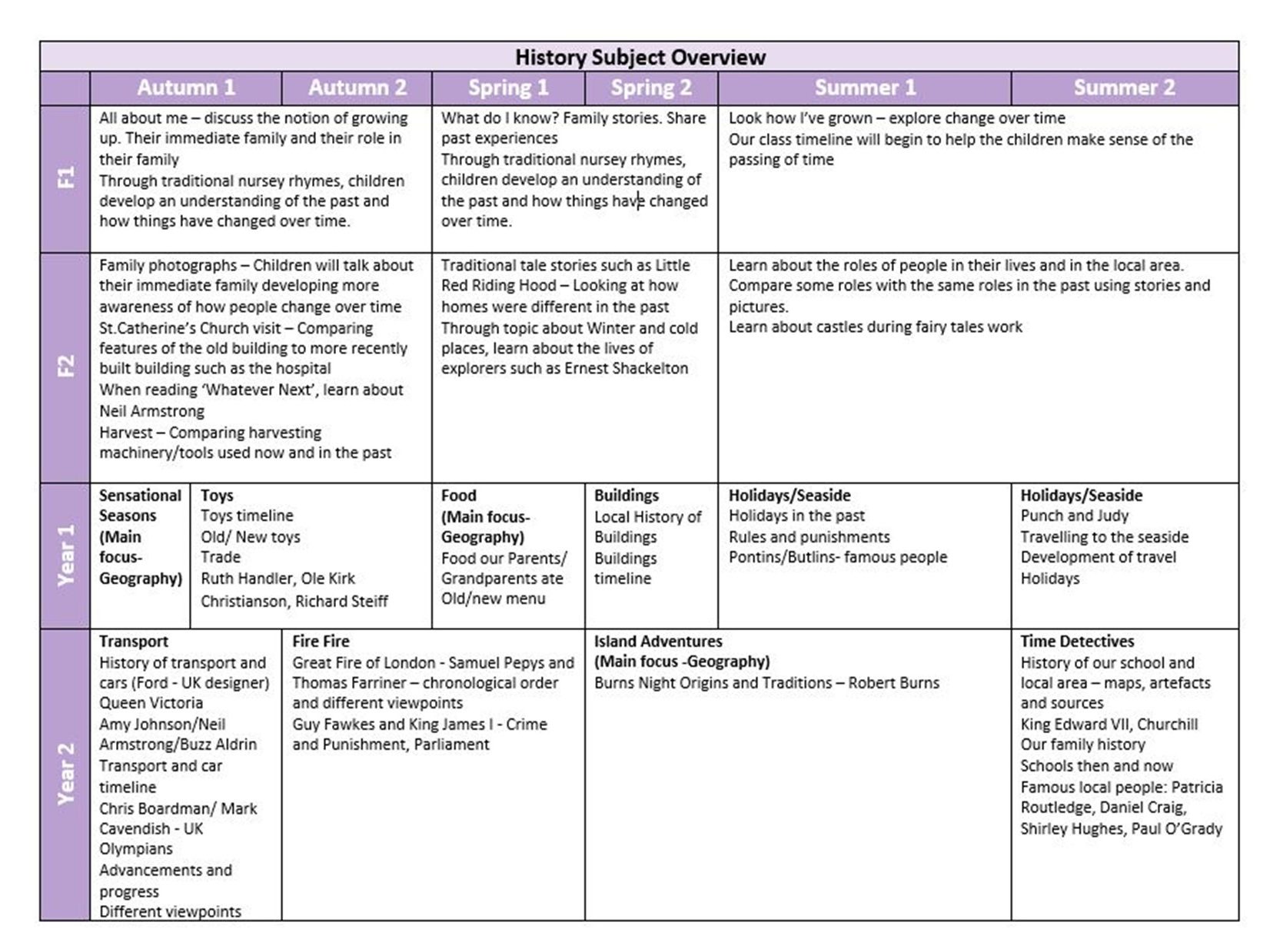
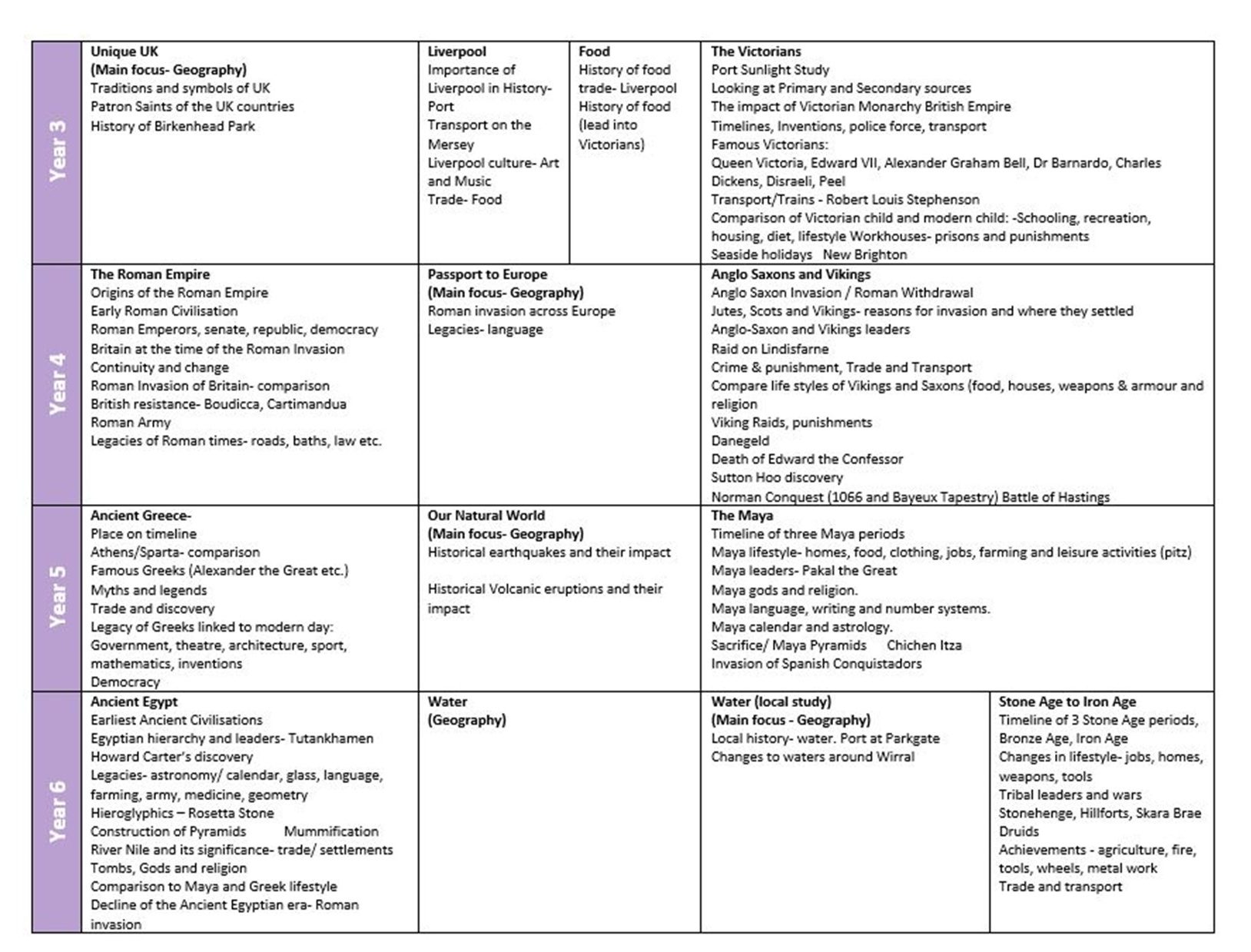
History at Mersey Park
Autumn Term
Foundation 1
In Foundation 1 the children begin to make sense of their own life-story. They are encouraged to talk about special events as they occur in their life such as Bonfire Night and Birthday celebrations as well as talking about past events and memories. They find out about Remembrance Day and why the poppy is a significant symbol. They also create a class timeline and add to it each month to remember key things in their F1 year.
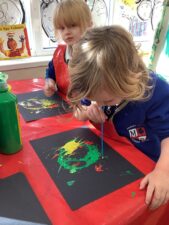
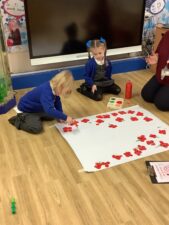
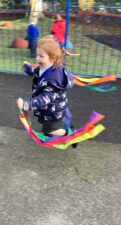
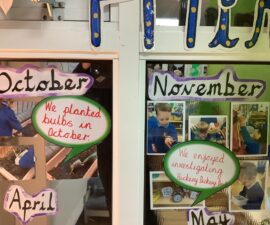
Foundation 2
In Foundation 2 the children explore and talk about how they have changed since they were babies. At Harvest time the children look at the ways crops are harvested today and through looking at images compare it to the past. The children sort toys from the past and toys today. The children compare familiar buildings in their local area. They observe the new hospital building and the old church. The children share some stories that begin to help them develop an understanding of life at Christmas time in the past. The children enjoy finding out about Christmas time in the past. They make pomanders using tangerines and cloves. They compare them to their own Christmas decorations.

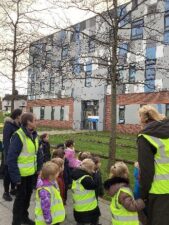
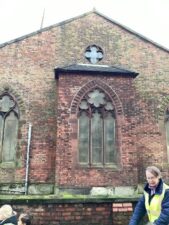
Year 1
In Year 1 the children learn about the history of toys. They compare old and new toys and talk about how technology has developed to create more advanced toys. They look at the different materials used to make old and new toys and make comparisons. They think about toys which people played with a long time ago that are still played with today. They create a toys timeline and discuss the evolution of toy technology.
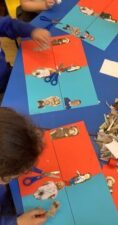
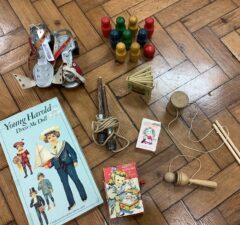
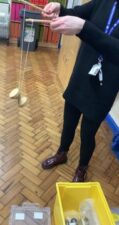
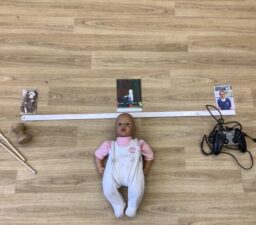
Year 2
Year 2 start their history journey by learning about different modes of transport and how cars, planes and trains have evolved over time. They create timelines to show the progression in development of these different technologies. They make comparisons and discuss how the development of these modes of transport have impacted on trade links. They learn about significant events in history related to transport such as the first moon landing by Neil Armstrong and the first female solo flight to Australia by Amy Johnson.
They then start their topic of Fire Fire where they learn about The Gunpowder Plot. They learn about when this happened and how this event took place beyond living memory. They also talk about why Guy Fawkes wanted to blow up the Houses of Parliament. They take part in a P4C discussion about, ‘Should you always follow your friends?’. They also create a story map pf the events of The Gunpowder Plot and act out the events.
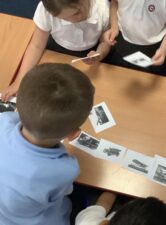
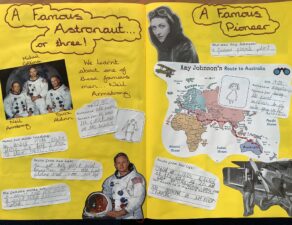
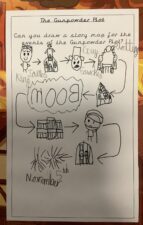
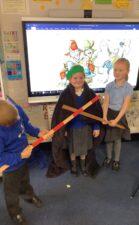
Year 3
In Year 3 the children look back in time to different historical landmarks within the UK and specific places on the Wirral. The children visit Birkenhead Park and learn about the history behind the park. They discover why this was such an important place to people.
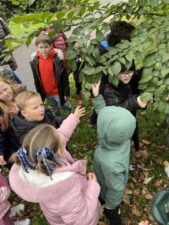
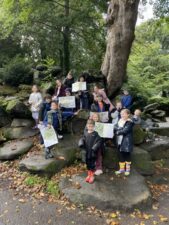
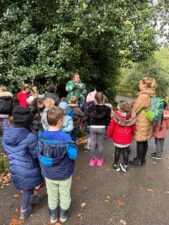
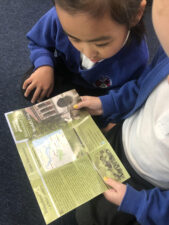
Year 4
Year 4 learn about the Roman Empire, its beginnings and lifestyles including Emperors, Gladiators, slaves and the army. They learn about Britain at the time of the Roman invasion and find out about the names of towns created by the Romans such as Bath, London and Chester. Year 4 also find out about the legacy of the Romans- calendar, money, roads, aqueducts, architecture, bureaucracy and rules. The highlight of this history topic is the trip to Chester, where they examine Roman artefacts in the Dewa Museum and also march around the city to see the remains of the Amphitheatre with a Roman legionary.
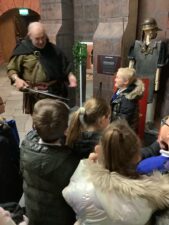
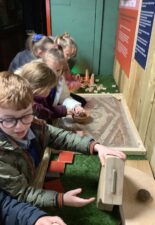
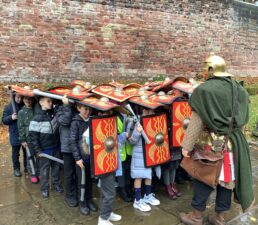
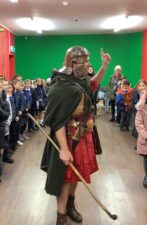
Year 5
In Year 5 the children learn about Ancient Greece. They start their topic by creating a timeline including all the significant historical periods they have previously studied and learn about key significant dates, people and events. They have the opportunity to handle artefacts and discuss their uses. Within each lesson thereafter, they gain an understanding of a different legacy from the Ancient Greeks have left and its impact they have had on the modern world. They then discuss the most important legacy to them.
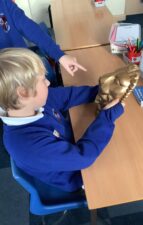
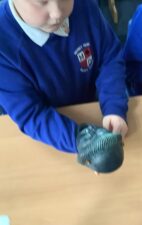
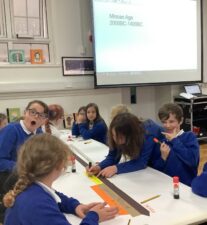
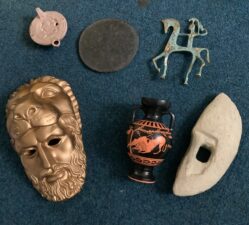
Year 6
In Year 6 the children complete a pyramid investigation. They compare Egyptian pyramids to Mayan temples, looking at similarities and differences. They create their own timelines during their study of Ancient Egypt. They consider key dates in Ancient Egyptian history and look at other powerful civilisations around that period.
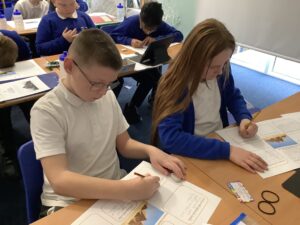
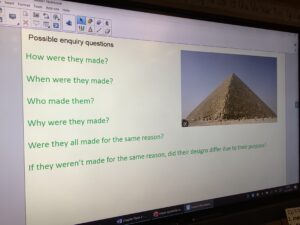
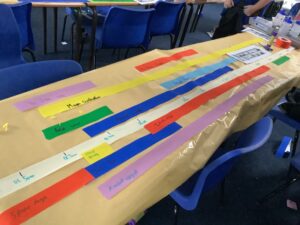
Spring Term
Foundation 1
In Foundation 1 the children think about the moon and space. They find out about who the first people to walk on the moon were.
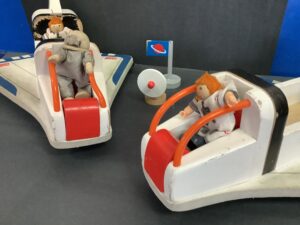
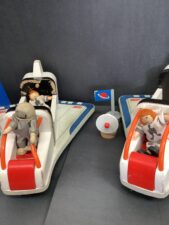
Foundation 2
In Foundation 2 the children use the story of Little Red Riding Hood to investigate household items from the past. They explore how things used to be cooked and cleaned, how we had light and kept warm before electricity and more traditional seating at dining tables and in living areas.
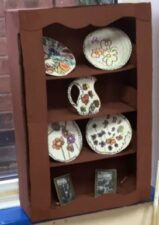
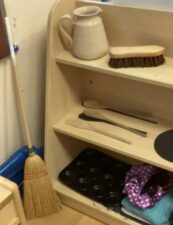
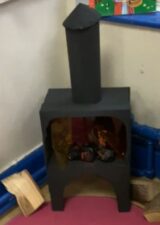
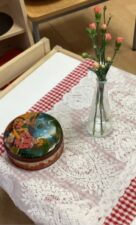
Year 1
In Year 1 the children locate their locate area Tranmere on a map. They research which significant buildings they would find in Tranmere and learn what they were used for in the past and still used for today.
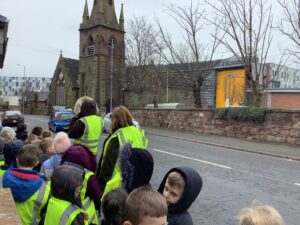
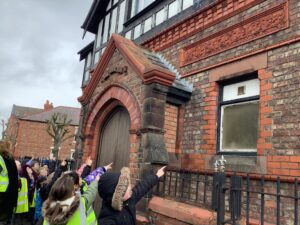
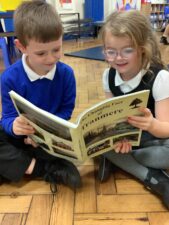
Year 2
In Year 2 the children continue with their Fire Fire topic. They find out about The Great Fire of London and who the significant people involved where. They record the events on a timeline of the events that happened during and after the disaster. They gain an understanding of how fire fighters and their equipment has changed from the past to now.
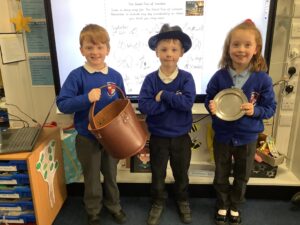
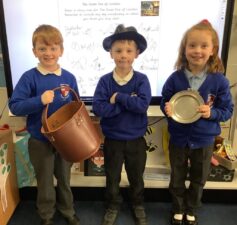
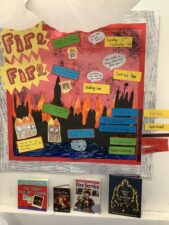
Year 3
In Year 3 the children learn about the importance of the history of Liverpool as a port for trade with a focus on the import and export of food. They look at how transport on the Mersey River has changed over time. They find out about the culture of Liverpool and the impact this has had on the wider world.
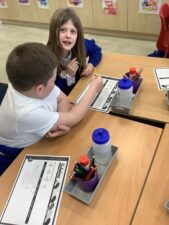
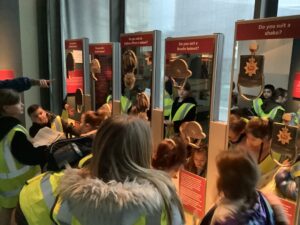
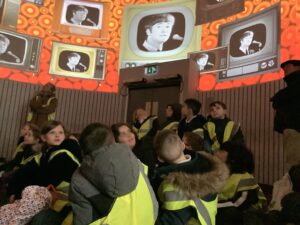
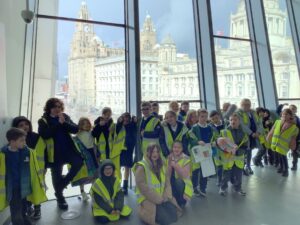
Year 4
In Year 4 the children learn the legacies of the Romans on Britain and the impact of the Romans on the languages spoken in the countries where they settled. As part of this work they look at the events before, during and after Mount Vesuvius erupting. Then read the text ‘Escape From Pompeii’ and write a diary entry. They learn about trade links over time.
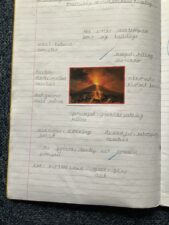
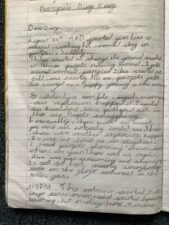
Year 5
In Year 5 the children research a specific earthquake from history (e.g. San Francisco, USA, 18.4.1906), placing the time of the event in context with other historical periods that they have studied. They create a report/presentation that outlines the timeline of the earthquake and the main events, with reference to the impact at the time and the lasting impact in modern times. The pupils will research a specific volcanic eruption from history (e.g. Mt Vesuvius, Italy, 79 AD), placing the time of the event in context with other historical periods that they have studied. They create a report/presentation that outlines the timeline of the eruption and the main events, with reference to the impact at the time and the lasting impact in modern times.
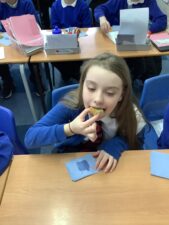
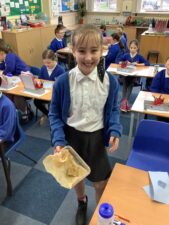
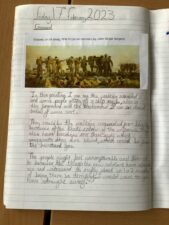
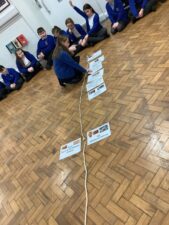
Year 6
In Year 6 the children start to learn about the significance of water in the local environment. They learn about the trade links provided by the River Mersey over time and the industry that was developed along its Wirral and Liverpool banks.
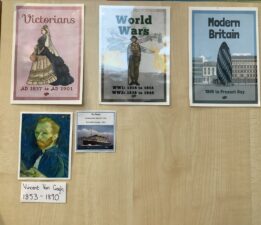
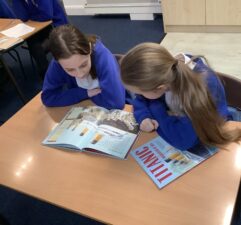
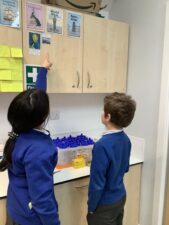
Summer Term
Foundation 1
In Foundation 1 the children enjoy looking back at the timeline of events for their fun filled year they have had in school.
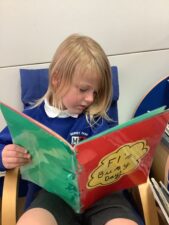
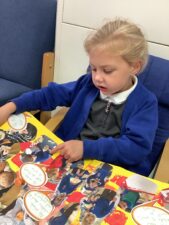
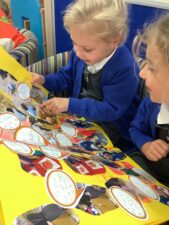
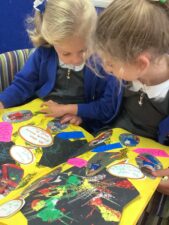
Foundation 2
In Foundation 2 the children finish the year with a Pirate topic. They learn about and create their own skull and crossbones flag, talk about maps from the past and what they show and discuss how pirate boats from the past look different to today’s boats.
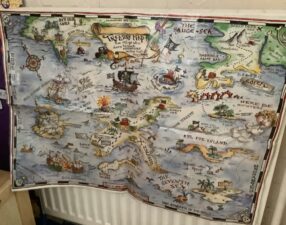
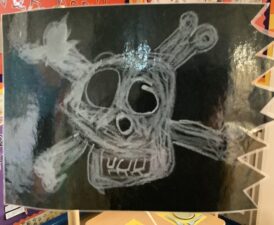
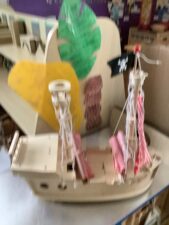
Year 1
In Year 1 the children explore Seaside holidays in the past. They look at when seaside holidays became popular, entertainment that you would have seen at the seaside and how the clothes you would have worn at the beach have changed over time.
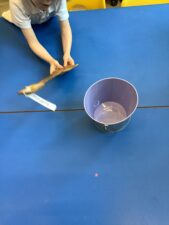
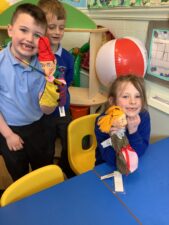
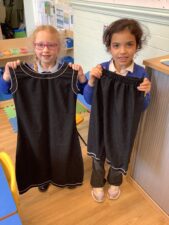
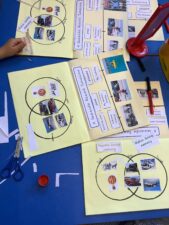
Year 2
In Year 2 the children discover a mystery box which contains artefacts from the school a long time ago. They learn about schools in the past and how they compare to school today.
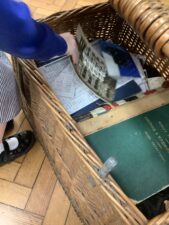
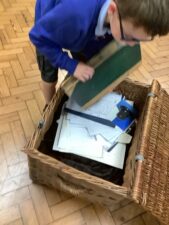
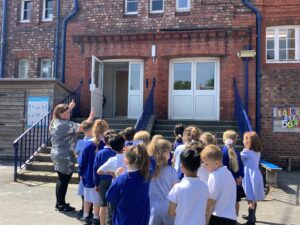
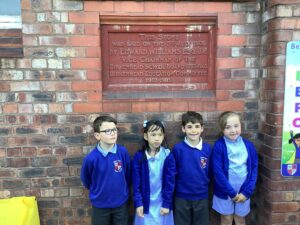
Year 3
In Year 3 the children find out about our local village of Port Sunlight. They explore how it became the town it is today and look at a timeline of the important people who influenced Port Sunlight village.
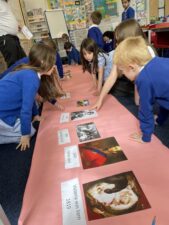
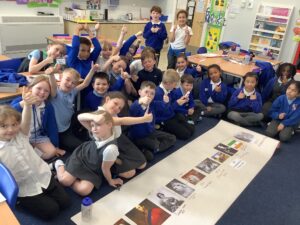
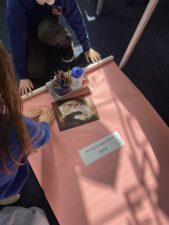
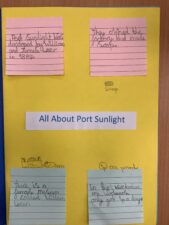
Year 4
In Year 4 the children find out about how the Anglo Saxons lived and create some amazing posters while doing it. They learn about Anglo Saxon crime and punishment and act out the capture and punishment of a criminal.
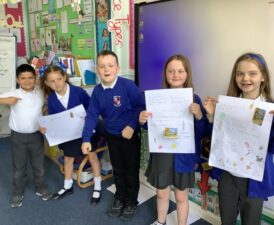
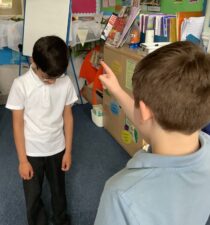
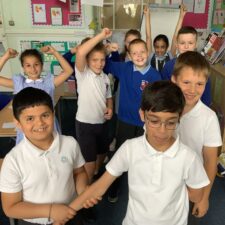
Year 5
In Year 5 the children are lucky enough to have a real Maya archaeologist come to visit. They see a whole host of different artefacts and learn many amazing facts about the Ancient Maya. They also compare life in the Maya civilisation to life in the Anglo-Saxon times focusing on key areas like houses and lifestyles.
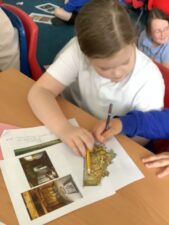
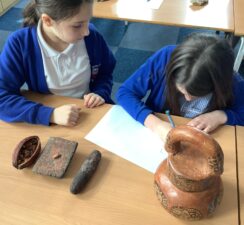
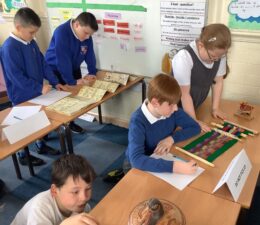
Year 6
In Year 6 they look at lots of Stone Age artefacts to find out information about how they farmed and lived. They also look at different hillforts, it is very interesting to look at different maps of them and discuss why they were designed and built the way that they were.
